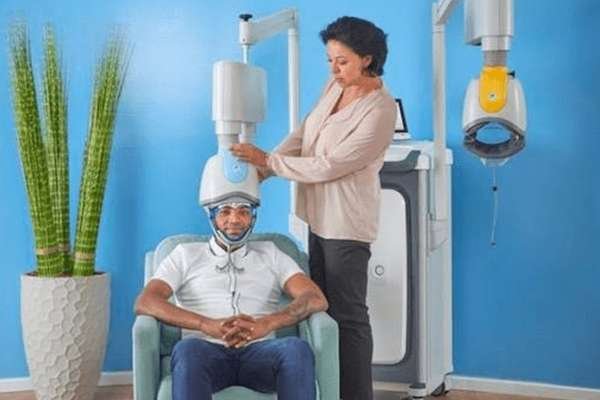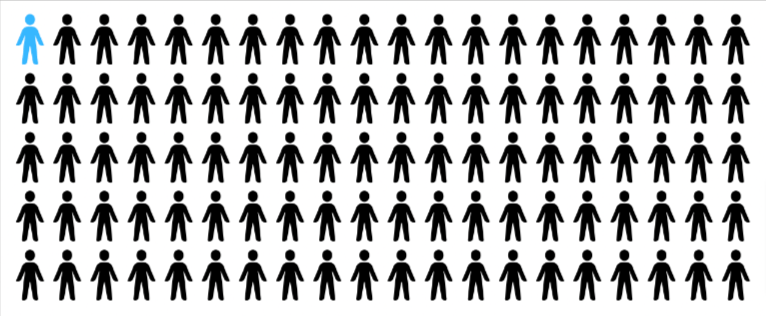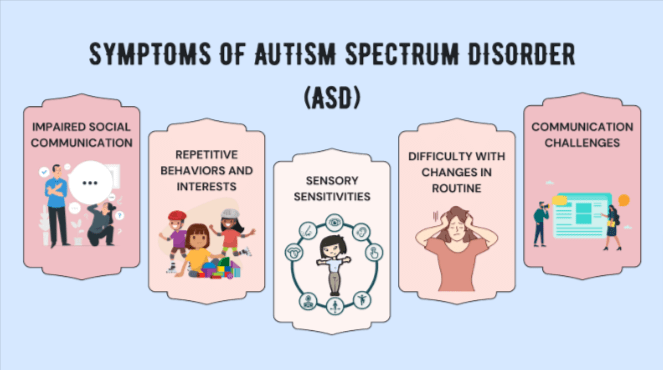Best Affordable Psychiatrist Clinic for Brain Stroke Treatment in Gurugram at Positive Mind Care
A brain stroke occurs when the blood supply to part of the brain is interrupted...

Positive Mind Care and Research Centre is a leading facility mental health care facility of Delhi -NCR, dedicated to helping individuals to overcome tobacco addiction and reclaim their joyful lives through a unique breakthrough technology called Deep TMS, which can reach significant depth and breadth of the brain and produce broad stimulation and functional modulation of targeted brain areas to cure the problem of addiction.
Deep TMS treatment features unique, patented coils that are fitted into a helmet, which is secured snugly to the patient’s head during the treatment. We are using BrainsWay’s therapy, which has been utilized in over 60 clinical trials worldwide. The company’s device has been FDA approved for the treatment of Major Depressive Disorder (MDD) since 2013, FDA cleared (De-Novo) for the treatment of Obsessive Compulsive Disorder (OCD) since 2018, FDA cleared as an aid for short-term Smoking Cessation since 2020, and has now received an expanded indication for Anxious Depression.
ASD or Autism Spectrum Disorder is a developmental disorder that affects communication, social interaction, and behavior. Individuals with ASD may have difficulties in understanding and responding to social cues, may engage in repetitive behaviors, and may have narrow interests. ASD is a spectrum, meaning that its severity and manifestations can vary widely among individuals. Early diagnosis and appropriate interventions can significantly improve the quality of life for people with ASD and their families.
According to the World Health Organisation, 1 in 100 children are said to have ASD.

The symptoms of Autism Spectrum Disorder (ASD) can be diverse and vary from person to person. ASD is characterized by challenges in social communication and repetitive behaviors. Some common symptoms include:
– Delayed or limited language development.
– Difficulty initiating or maintaining conversations.
– Use of repetitive language or echolalia (repeating words or phrases).
– Difficulty understanding and using nonverbal cues, such as gestures, facial expressions, and body language.
– Difficulty understanding and responding to social cues and norms.
– Struggles with making and maintaining eye contact.
– Trouble forming and maintaining meaningful relationships with peers or others.
– Limited interest in sharing activities, interests, or emotions with others.
– Engaging in repetitive movements or actions, such as hand flapping or rocking.
– Insistence on sameness or rigid adherence to routines.
– Intense focus or preoccupation with specific topics or objects.
– Unusual or obsessive interests in specific subjects.
– Heightened sensitivity to sensory stimuli, such as lights, sounds, textures, or smells.
– Overreacting or underreacting to sensory experiences.
– Awkward or unusual body postures or movements.
– Delayed development of gross or fine motor skills.
It’s important to remember that not all individuals with ASD will display all of these symptoms, and the severity of the symptoms can vary widely. Additionally, some individuals with ASD may have strengths in specific areas, such as exceptional memory or attention to detail.
Early identification and intervention are crucial in supporting individuals with ASD and helping them reach their full potential. If you suspect that you or someone you know may have ASD, seeking a professional evaluation from a healthcare provider or developmental specialist is recommended for a proper diagnosis and appropriate support.

Provides a convenient and flexible approach to treatment, allowing patients to receive care while maintaining their daily routines.
A non-invasive procedure that targets specific areas of the brain associated with depression. This innovative treatment option has shown promising results in reducing symptoms of MDD and is FDA approved.
A supportive and empathetic environment to express thoughts, emotions, and experiences, develop coping strategies, and gain insights to improve overall well-being.
Our center combines expert medical care with a compassionate and supportive environment, empowering individuals to reclaim their lives.
Cultivate awareness, reduce stress, and enhance overall well-being through meditation, yoga, and other practices to keep you grounded.
Our center combines expert medical care with a compassionate and supportive environment, empowering individuals to reclaim their lives.
Deep Transcranial Magnetic Stimulation (Deep TMS) is a non-invasive brain stimulation technique that has been studied as a potential treatment for various neuropsychiatric conditions, including smoking addiction. While the research in this area is still ongoing, Deep TMS has shown some promising results in helping individuals with smoking addiction. Here’s how Deep TMS may help in treating smoking addiction:
We at Positive Mind Care and Research Centre, a new generation mental health clinic, are dedicated to providing the highest quality care and research in the field of mental health. We take a positive and holistic approach to mental health, focusing on the individual as a whole and their unique needs and circumstances. We are committed to using evidence-based scientific treatment methods, conducting research, and providing education and outreach to the community. Remember that you are not alone, and we are here to help you on your journey towards betterment!
A brain stroke occurs when the blood supply to part of the brain is interrupted...
Addiction is a serious and life-altering condition that can disrupt both the personal and professional...
Anxiety is a common mental health issue affecting millions of individuals globally. It manifests in...
Learn more about how Positive Mind Care innovative TMS treatment technology can be effective in treating psychiatric disorders.
Learn more about how DEEP TMS treatment technology can be effective in treating neurological disorders.
Disclaimer:- The information provided on this website is for informational & educational purposes only and should not replace professional medical advice. Please consult with a qualified healthcare provider for personalized treatment recommendations.
Copyright © 2023. Positive Mind Care. All Rights Reserved